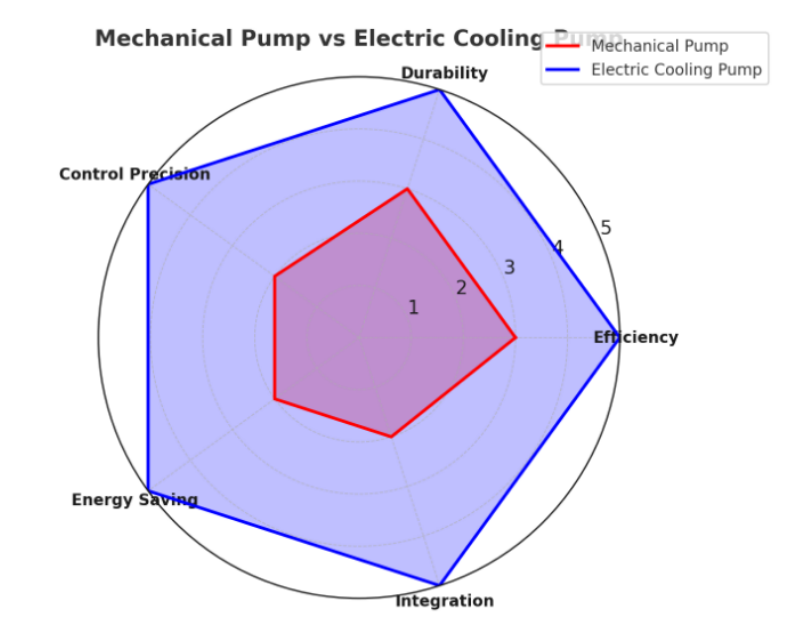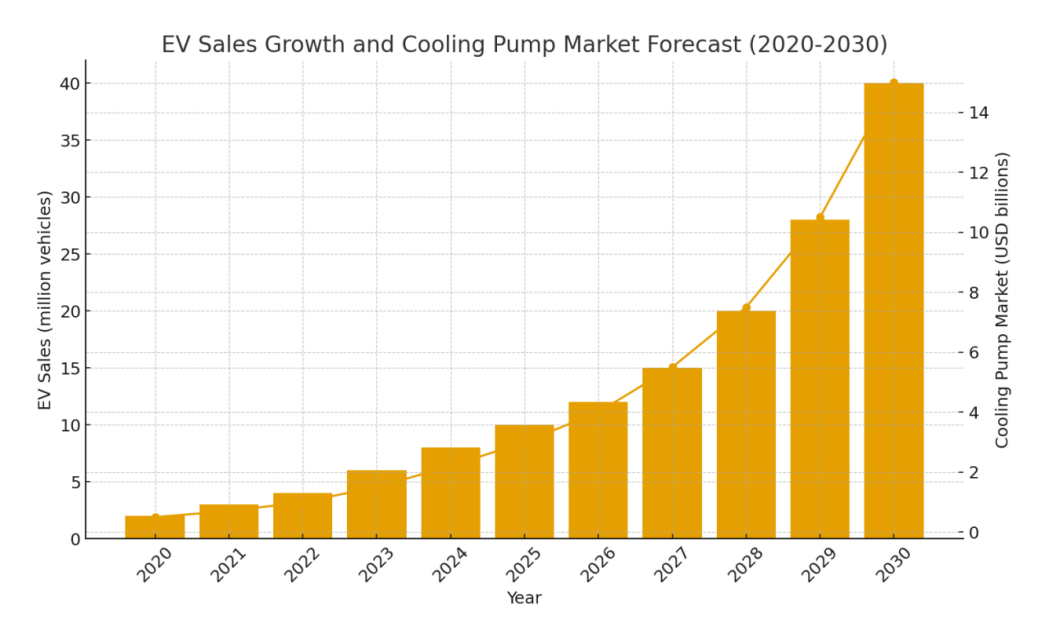As the world accelerates toward electrification, thermal management has become one of the most critical areas defining the performance, safety, and efficiency of new energy vehicles (NEVs). At the heart of this system lies the electric cooling pump—a compact but powerful technology driving next-generation innovation.
1. Why Cooling Pumps Matter in EVs
EVs and plug-in hybrids generate significant heat from battery packs, inverters, and fast-charging systems. Without efficient cooling, thermal stress can shorten component lifespan and compromise safety. Electric cooling pumps enable:
2. Mechanical vs Electric Cooling Pump: A Technology Leap
Electric cooling pumps outperform mechanical pumps across key performance dimensions:

Figure 1. Mechanical vs Electric Cooling Pump Comparison
3. Market Outlook: Rapid Growth Ahead
With global EV adoption accelerating, demand for advanced cooling systems is rising exponentially. Cooling pumps are no longer a supporting component—they are a strategic enabler of EV reliability and performance.

Figure 2. EV Sales and Cooling Pump Market Forecast (2020–2030)
EV sales are projected to grow from 2 million in 2020 to 40 million in 2030.
The global market for electric cooling pumps is forecast to exceed USD 15 billion by 2030.
Increasing adoption of fast charging, higher-capacity batteries, and thermal safety regulations will drive this surge.
4. Future Development Directions
Conclusion
The rise of electric cooling pumps is not just a technical evolution but a strategic transformation for the automotive industry. For EV manufacturers, adopting advanced cooling pump solutions means unlocking longer battery life, safer operation, and better energy efficiency—all crucial for winning the competitive race in the NEV era.